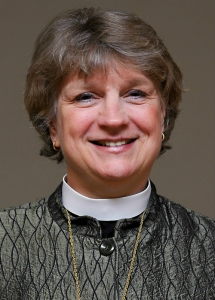 By Bishop Ann Svennungsen
By Bishop Ann Svennungsen
“It was during a time of personal prayer and fasting that I received the news I would play the part of King in the movie Selma,” David Oyelowo told the crowd gathered for the Annual Martin Luther King Jr. breakfast. It seemed to him that God had called him for this role. However, that didn’t make it easy. For the three months of filming, Oyelowo did not get out of character. And, even the threats that King faced began to seem like threats to the actor himself.
There is little doubt that Martin Luther King, Jr. sensed that God had called him as a prophet. But, that didn’t make it easy. Oyelowo tells about King’s anguish as he faced death threats during the Montgomery bus boycott. Sitting with his coffee in the parsonage kitchen, King prayed: “I am here taking a stand for what I believe is right. But now I am afraid. The people are looking to me for leadership, and if I stand before them without strength and courage, they too will falter. I am at the end of my powers. I have nothing left. I’ve come to the point where I can’t face it alone.”
At that moment, King writes, “I experienced the presence of the Divine as I had never experienced God before. It seemed as though I could hear the quiet assurance of an inner voice saying: ‘Stand up for justice, stand up for truth; and God will be at your side forever.’”
I WAS PRIVILEGED TO visit King’s parsonage kitchen as part of a Civil Rights Tour in 2016. It felt like we were in sacred space, on holy ground. The scene actually comes to me often – the linoleum table, the metal chairs, the white cupboards – and gives me courage and faith as I do my small part seeking justice and the common good.
“Though we may not fear violence or death threats as King did, we all need the kind of faith and courage that King sought from God.”
Oweloyo received special applause for his remark: “in this country right now, when it comes to race, we are in a place we do not want to be.” Given the events of Charlottesville, the disparagement of Haiti and Africa, and the rise of white supremacist groups, his statement may be more of an understatement.
And, though we may not fear violence or death threats as King did, we all need the kind of faith and courage that King sought from God. (Seasons of prayer and fasting as modeled by Oyelowo would also be good.) Our call to “do justice” (Micah 6:8) is threatened more by the frequent – even daily – stories of bigotry and division. We become numb to the horrible truth if our only act of resistance is watching the reactions of late night TV hosts.
Yesterday, along with the powerful voice of Oyelowo, we also heard recently discovered footage from a 1967 King speech given at the University of Minnesota. Now, 51 years later, I hope we can join King in sharing the vision he shared then: “I personally decided to tell America the truth, because I love America so much. And I want to see our great nation stand as a moral example of the world.”
